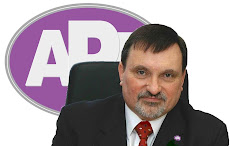 “Unquestionably the biggest and most costly gaff of his career and one that will haunt him for years to come” was how Gareth Osborne described the enormous faux pas made by the Gordon Brown yesterday.
“Unquestionably the biggest and most costly gaff of his career and one that will haunt him for years to come” was how Gareth Osborne described the enormous faux pas made by the Gordon Brown yesterday.This is an unfortunate but none-the-less perfect lesson for PAs when working in a PR capacity or who are engaging with the press and broadcast media. One of the first lessons you must learn is never to make off the cuff, ill-considered or private sidebars when with or around the media. There is no such thing as privacy (or personal comments) and any misquote or wrong interpretation of a question will be forgiven. If you say something that can be interpreted badly, it will be used. And don’t always rely on saying ‘Is this off the record?’ That’s why people who do it for a living are so good and people who don’t appear fazed – they usually are.
And always remember ‘Mike is never your friend’. It you are wearing one, say nothing that isn’t directly related to the matter in hand. Trust me, I’ve been caught out more than once. You would have hoped that someone of Gordon Brown’s experience and media training would have learned this simple fact; he must be terribly stressed!
Gareth, APA






















